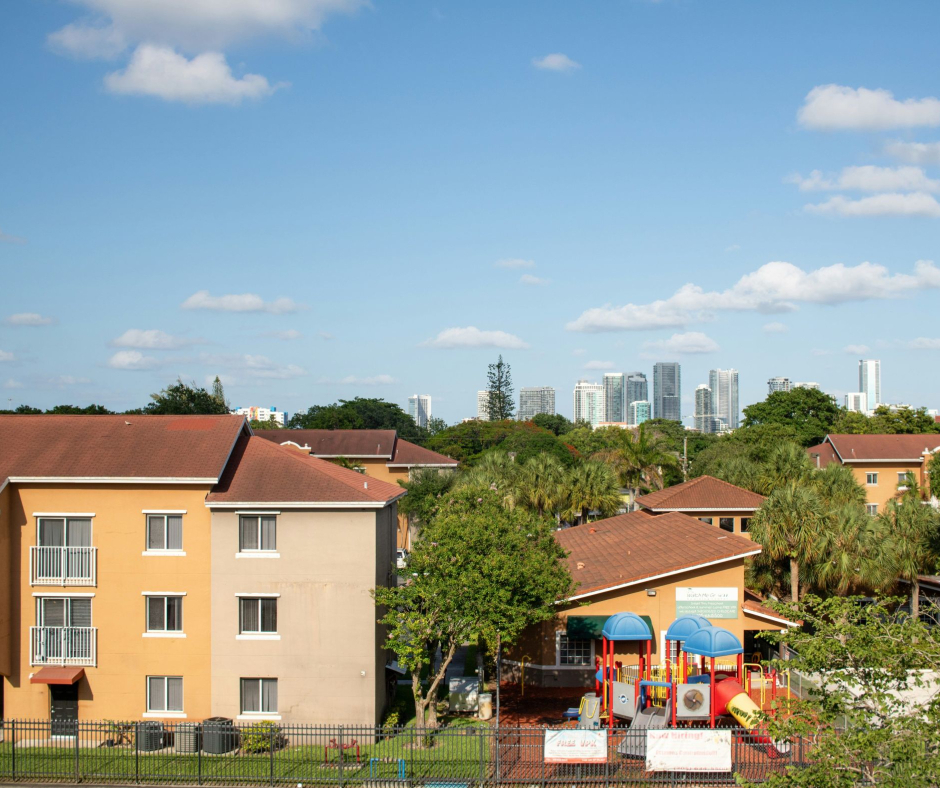Mortgage Guidelines on Buying 2-to-4-Unit Multi-Family Homes

This guide covers buying 2-to-4-unit multi-family homes. Any property up to 4 units is considered a residential property, and residential mortgage lending guidelines apply to buying 2-to-4-unit multi-family homes. Homebuyers considering buying 2-to-4-unit multi-family homes can purchase the property as owner-occupied units.
The down payment required depends on the type of mortgage loan program they choose. Buying 2-to-4-unit multi-family homes can also be purchased as investment property mortgage loans.
However, with investment homes, FHA loans are not eligible. This is because FHA and other government loans only apply to owner-occupied properties. Buying 2-to-4-unit multi-family homes as owner-occupied homes is a great way to get rental income. Many homeowners of 2-to-4-unit multi-family homes can often live rent-free. This is because the rental income offsets the mortgage payments. In this article, we will discuss and cover buying 2-to-4-unit multi-family homes.
Buying 2-to-4-Unit Multi-Family Homes
HUD, the parent of FHA, allows buyers of 2-to-4-unit multi-family homes to purchase them with a 3.5% down payment. There are no reserve requirements on a two-unit property. However, three-month principal, interest, taxes, and insurance reserves are required on 3 to 4-unit properties. A down payment of 3.5% can be gifted when buying 2-to-4-unit multi-family homes. However, the three-month reserves cannot be gifted. Reserves need to be the borrower’s funds. Reserves do not have to be cash. These can be liquid assets such as IRA, 401k, Keogh, and investment accounts. The minimum credit score to qualify for 2-to-4-unit multi-family homes with FHA loans is 580.
Speak With Our Loan Officer About Buying 2-to-4-Unit Multi-Family Homes
Conventional Loans On Buying 2-To-4-Unit Multi-Family Homes
Fannie Mae and Freddie Mac require a 3% to 5% down payment on owner-occupant conventional loans for 2-to-4-unit multi-family home purchases. A 3% down payment is for first-time homebuyers only. Fannie Mae and Freddie Mac also require reserves for 3- to 4-unit properties. The minimum credit score to qualify for a conventional loan for 2-to-4-unit multi-family homes is 620.
Potential Rental Income On 2-to-4-Unit Multi-Family Homes Properties
Potential rental income can be used to qualify for buying 2- to 4-unit properties. HUD allows up to 85% of the potential rental income of 2-to-4-unit multi-family homes to qualify for the borrower’s income in calculating their debt-to-income ratios. Conventional loan programs allow up to 75% of potential rental income to qualify for the borrower’s income in calculating their debt-to-income ratios.
Landlord Experience
Many mortgage lenders will require two years of landlord experience from the mortgage loan borrower of a 2 to 4-unit property purchase to count the potential rental income, especially with conventional loans.
If you encounter a situation where the mortgage lender has a vested interest in landlord experience, please get in touch with me at GCA Forums Mortgage Group at 800-900-8569. Text us for a faster response, or email us at gcho@gustancho.com. We are available seven days a week, including holidays.
How Long Do I Need To Be Owner Occupant
Homebuyers purchasing a 2-to 4-unit multi-family homes via an FHA-insured mortgage loan or other government loan programs must have been owner-occupants for at least 12 months. After 12 months of living on the 2 to 4-unit property, they can qualify for another owner-occupied home loan. Homebuyers may be eligible for another home loan after 12 months if they do not purchase another multi-unit property or a single-family home. The United States Department of Veterans Affairs allows home buyers to purchase two to four-unit properties with 100% financing. VA has one of the most lenient mortgage guidelines from any loan program, especially when buying 2 to 4-unit property. VA home loans have no credit score requirements or debt-to-income ratio caps.
Qualifying With Lender With No Overlays on 2-to-4-Unit Multi-Family Homes
GCA Forums Mortgage Group are mortgage brokers and correspondent lenders with no overlays on government and conventional loans. When buying a 2-to-4-unit multi-family homes and needing to qualify with a mortgage lender with no overlays on 2-to-4-uni multi-family homes you can contact us at GCA Forums Mortgage Group at 800-900-8569. Text us for a faster response. Or email us at gcho@gustancho.com. The team at GCA Forums Mortgage Group are experts in originating and funding 2 to 4-unit properties and are available 7 days a week.
Qualify For Buying 2-to-4-Unit Multi-Family Homes with Lender With No Overlays
Frequently Asked Questions on Government and Conventional Mortgage Guidelines on Buying 2-to-4-Unit Multi-Family Homes
Here is your complete FAQ that addresses Government and Conventional Mortgage Guidelines when buying 2 to 4-unit multi-family homes:
Answering Common Questions
In Simple Words, What Does it Mean to Say a 2-to-4-Unit Multi-Family Homes?
It is a residential building that contains two, three, or four units and can be used as a first home, with the additional units available for rent, or as an investment multi-family property.
Can a Government-Backed Loan Be Used to Purchase 2-to-4-Unit Multi-Unit Homes?
Suppose you have an FHA, VA, or USDA loan. In that case, you can purchase a 2 to 4-unit property if the following conditions are met: “FHA Loan – You intend to occupy one of the units as your principal residence. The loan limits for multi-family properties are higher than those for single-family ones.
VA Loan—Some war veterans or present members can get 2 to 4 multi-family housing with a 0% down payment if they live in one of the units. USDA Loan—These are rarely used but can be used if targeting a US rural region and the multi-family homes fit the requirement.
What Minimum Amount Must Be Paid as a Down Payment for Purchasing a 2-to-4-Unit Multi-Family Homes?
A maximum of 3.5% down payment for FHA Loans will be required, but only if you fall above the credit score of 580.
Conventional Loans: Require a minimum of 15-20-25 percent on 2, 3-4 unit investor properties, respectively. However, if you live in the property, the down payment is lower than 5-10 percent, depending on the lender. If you lose your job and can’t make payments, you can get refinanced at higher interest, depending on the new lender.
VA Loans: Eligible veterans (active duty, retired, or in reserve) can buy owner-occupied multi-family properties with no down payment.
What About the Credit Score? What Are the Requirements?
- FHA Loans: A minimum credit score of 580 is required for borrowing with 3.5% down; a person with a score between 500 and 579 will require a 10 percent down payment.
- Conventional Loans: A fair score of about 620 and above is required.
- VA Loans: There are technically no minimum credit scores, but most lenders prefer around 620 or above.
- USDA Loans: These loans usually need a score of 640 or thereabouts.
When Renting Out the Other Units. How is That Considered When Qualifying for This Loan?
In the case of non-owner-occupied units, projected rental income may be used. Most lenders will enable you to factor in 75% of this projected rental income to help qualify for the requisition of the mortgage. This income must be validated using:
- An appraisal with a rent schedule (Fannie Mae Form 1007).
- Signed leases (if tenants are already in place).
What Are The Limits on the Amount of Money Financed for Multi-Family Properties on FHA, VA, and Conventional Loans?
- FHA Loan Limits: These also depend on metropolitan areas and the number of units. In high-cost areas, the limit for multi-family houses with four units is expected to exceed 1.2 million dollars in 2024.
- VA Loan Limits: There are no loan limits in case of full entitlement; otherwise, it depends on the conforming loan limits of the relevant county.
- Conventional Loan Limits: In 2024, the nationwide loan limit for conforming loans for a four-unit property will be $1,396,800. Cheaper options are available in lower-ranking cost areas.
Can I Apply Gift Funds to the Deposits?
- FHA Loans: Gift funds can cover the entire deposit but must be certified as coming from a designated acceptor.
- Conventional Loans: Borrowers usually require gift funds but to a certain extent where lenders may expect an injection of some self-funding from the borrowers.
- VA Loans: Since there are zero deposits, facilitated gift funds have never been used in this case.
Are There Any Restrictions on the Amount Held in Reserve to Buy a House Having 2-to-4-Units?
Yes, most lenders ask to keep cash reserves when buying Multi-family properties.
- Conventional Loans: 6 months for a person who lives in the property and expects to earn income from it; 12 months are needed to check investment properties.
- FHA Loans: There ceases to be a specific reserve required unless the loan is manually underwritten or the borrower’s credit score is relatively lower.
- VA Loans: It is encouraged not to apply a reserve requirement so long as rental income is not used as part of the qualifications.
What Are the Property Condition Requirements?
Government-backed loans require a certain property to be inhabitable, safe, and structurally sound.
- FHA Loans: A minimum property standard must be provided through a HUD-approved appraisal and executed correctly.
- VA Loans: Involves a VA appraisal and minimum property requirements for MPRs.
- Conventional Loans: They do the same with them, but there is more lenience in terms of conditions for the appraisers to come to. Unlike the FHA/VA, there is more room for flexibility.
Can I Use a Multi-Family Property as an Investment?
- FHA Loans: Only if one chooses to occupy one of the many physical units. It cannot be used for investment purposes, so there is not much justification for purchasing it.
- VA Loans: The same conditions apply to FHA loans. In this regard, you have to occupy one unit of the building you want to buy.
- Conventional Loans: Yes, it is possible to do that, but conventional loans for investment purposes have high down payments and tough credit qualifications.
Can I Refinance a 2-to-4-Unit Property?
Both conventional and government loans permit refinancing, so yes:
- Rate-and-Term Refinance: You can change the interest rate or the loan length.
- Cash-Out Refinance: This includes FHA, VA, and conventional loans allowing multi-family cash-out refinance properties.
- Streamline Refinance: This is applicable to FHA and VA loans, and it allows you to cut down on the interest rate without caller verification.
Are There Any Tax Advantages Associated With Acquiring a Multi-Family Property?
Indeed, you can pay expenses for the multi-family property that you own. These include:
- Interest payments on a mortgage and property taxes.
- Rental losses about the property itself
- Rental expenses are part of its normal economic maintenance (e.g., repairs and maintenance).
You should, however, seek the services of a tax expert to understand the implications for your specific case.
What Are the Risks Associated With Multi-Family Ownership?
- Vacancy Risk: Missing out on a unit can result in not being able to make the required mortgage payments.
- Maintenance Costs: Multi-family homes have been known to need more frequent repairs than other types of properties.
- Management Challenges: Attending to tenants can be quite time-consuming unless you can engage the services of a Property Manager.
Can a HomeBuyer Loan Be Obtained Using a Multi-Family Unit?
Yes, some programs allow you to buy at least two multi-family units as long as you plan on residing in one of them. If you are a first-time buyer, FHA loans are a great option.
What Type(s) of Loan(s) Would Best Finance Your Two- or Four-Unit Property?
There is no defined loan best fitted for all, so selecting the best one(s) would depend entirely on your situation:
- FHA Loan: This loan is suitable for people who want a small deposit and do not want a lengthy credit checking process.
- VA Loan: This is the most favorable option for veterans, as there is no deposit requirement, and the terms are standard.
- Conventional Loan: Qualifies best for higher-income borrowers or investors looking to buy property as an asset.
Get guidance from your lender: Always consider working with a lender with experience in multi-family property loans.
Do basic calculations: Analyze potential rental income, property costs, and your financial situation pre-purchase.
Study zoning laws: Ensure the property is multi-family compliant and meets local authorities’ regulations.
Speak With Our Loan Officer About Buying 2-to-4-Unit Multi-Family Homes






Responses